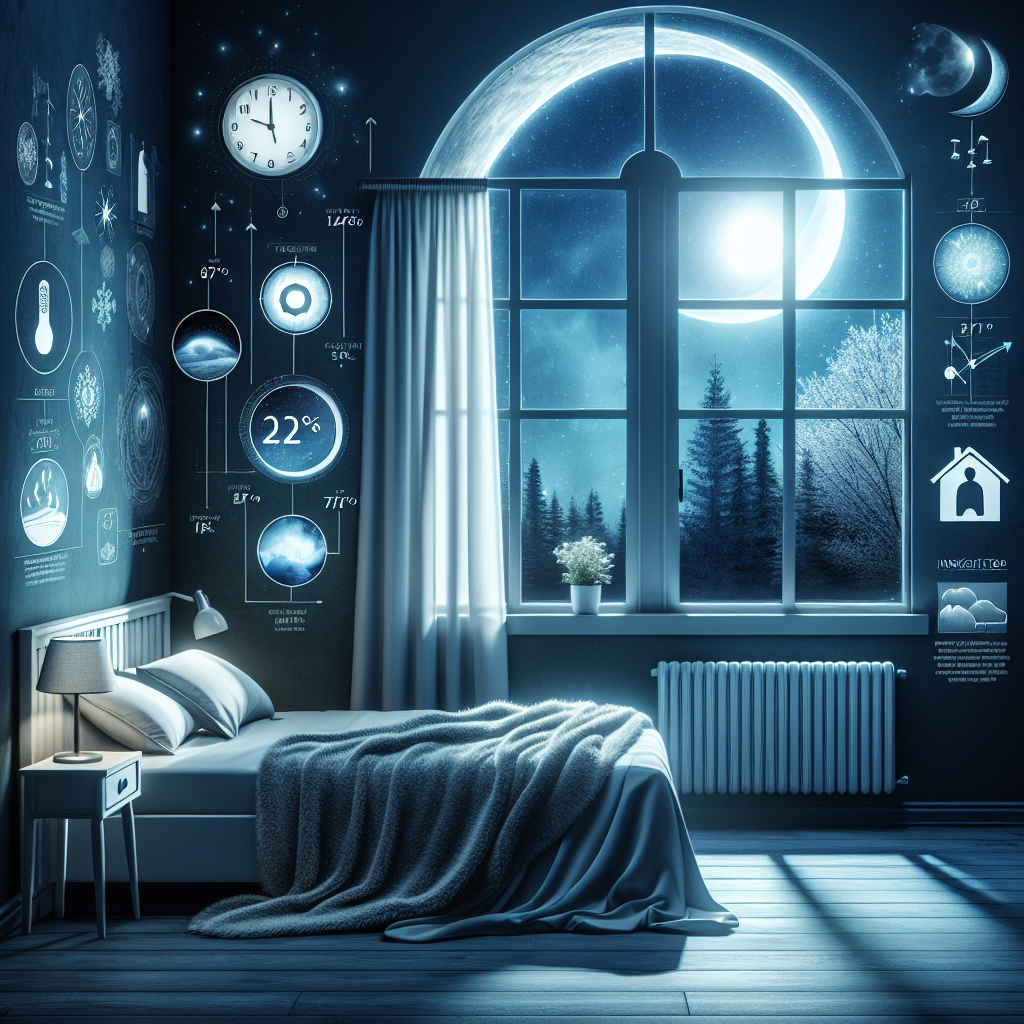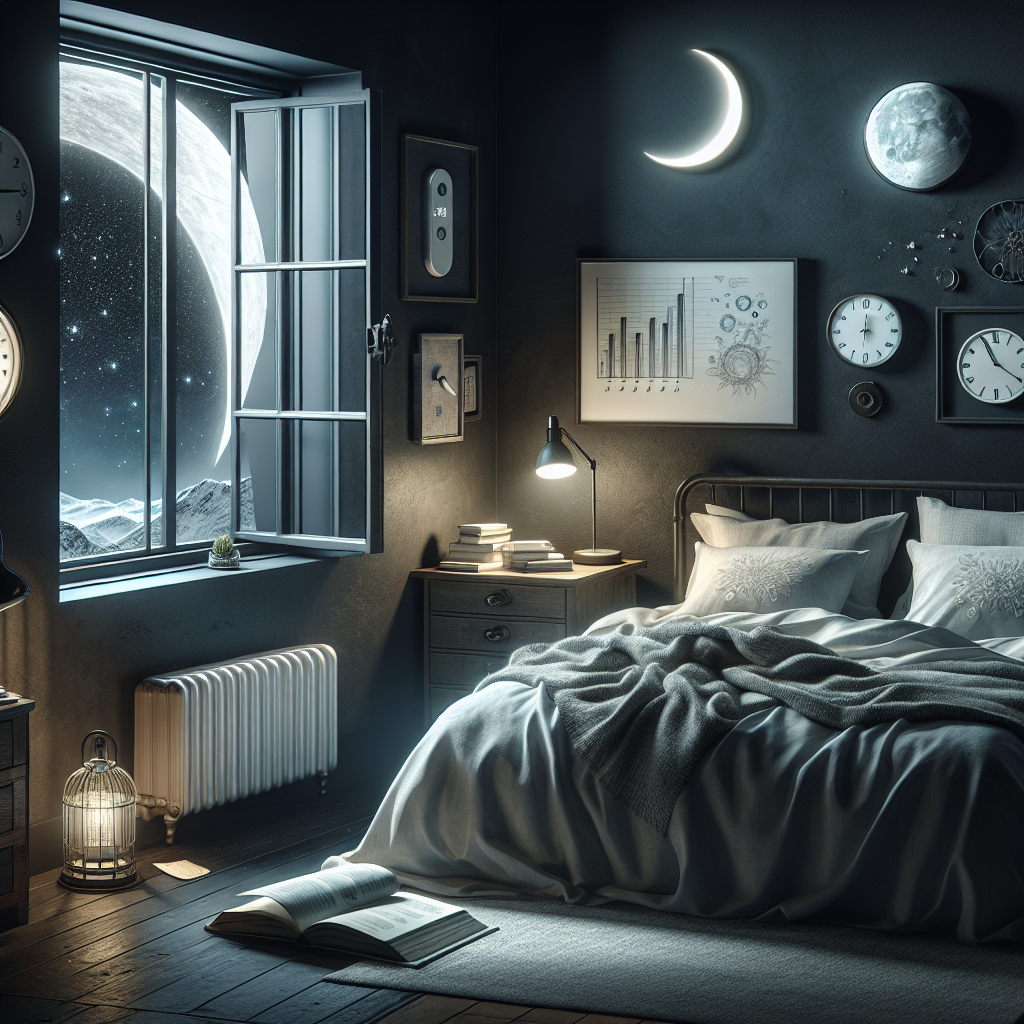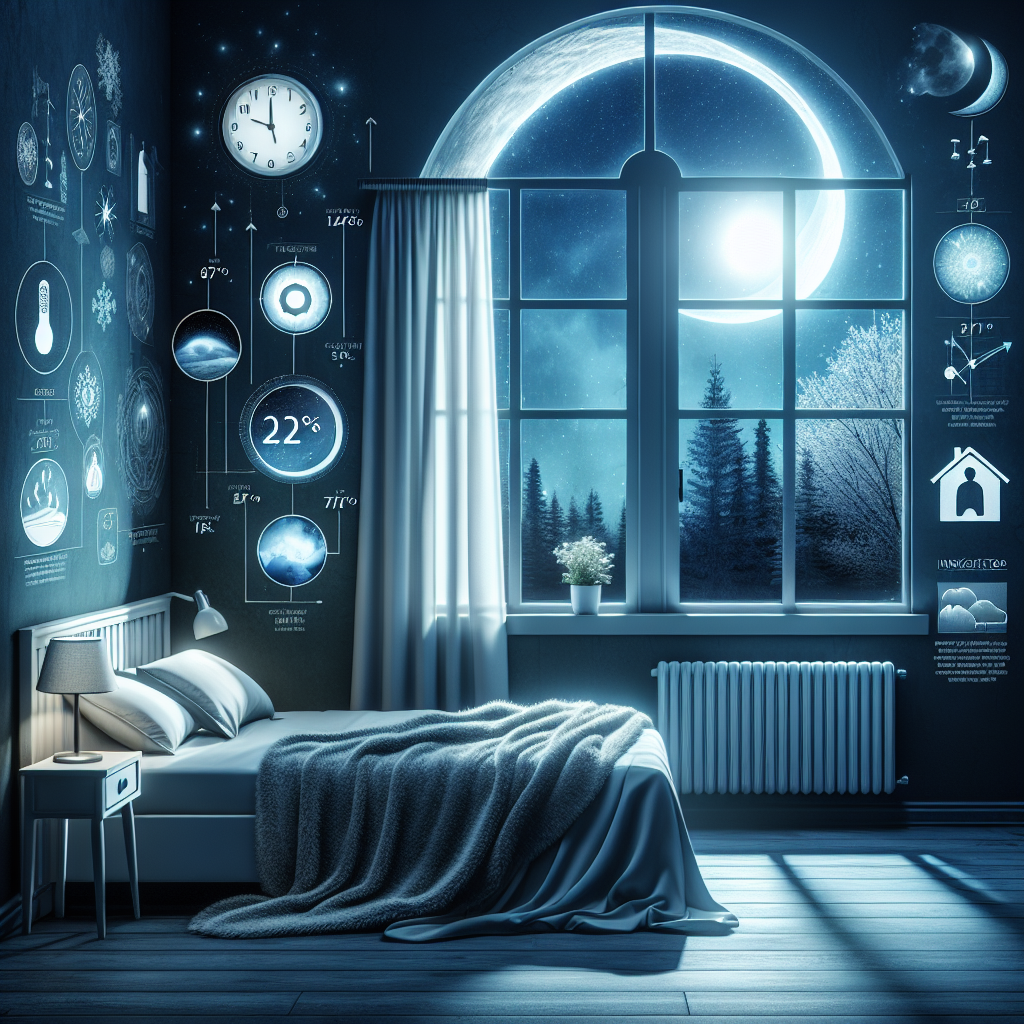Don’t you just love that feeling of crawling into snug, cool sheets at bedtime? “Harnessing The Power Of Cold For Better Sleep” is all about that fulfilling sensation, but with a scientific twist. This fascinating article unravels the remarkable connection between a cooler body temperature and improved sleep quality. Discover an astonishing new perspective on how the crisp night air, chilly bedroom conditions, and even cold showers can refreshingly transform your sleep routine. It’s a kind of night-time revelation that could revolutionize your slumber and overall wellness.

The Importance of Sleep
Sleep has a massive influence on our overall health and well-being. Just like diet and exercise, it plays a critical role in maintaining physical health, mental health, productivity, and quality of life. Without enough sleep, your body can’t function properly. It’s during sleep that your body repairs itself, regulating hormone production, strengthening the immune system, and consolidating memories. A lack of sleep can cause mood swings, difficulty in concentrating, and can even increase the risk for serious health conditions like heart disease and diabetes.
The impact of sleep on overall health
Sleep isn’t just about banishing under-eye circles or improving moods – it’s essential for overall health. Lack of sleep can lead to an impaired immune system, making you more susceptible to infections. Chronic sleep deprivation can also increase your risk for various conditions, including heart disease, diabetes, obesity, and even certain types of cancer. With consistent, quality rest, your body has a chance to restore and repair various functions such as tissue repair, muscle growth, and hormone regulation.
Common sleep disorders
Sleep disorders can seriously impede the quality of sleep you’re getting, leading to negative health effects. Some common sleep disorders include insomnia, sleep apnea, restless legs syndrome, and narcolepsy. These disorders can lead to chronic sleep deprivation, leaving you fatigued, unfocused, and at risk for various health problems.
The role of temperature in sleep quality
Believe it or not, temperature plays a pivotal role in sleep quality. The body naturally cools down during sleep, so keeping your sleep environment on the cooler side can help facilitate this process and make it easier to fall and stay asleep. It is a less known fact that a cooler sleep environment can result in a more restful, undisturbed sleep.
Understanding the Power of Cold
Exposure to cool temperatures has an undeniable impact on the body. From constricting blood vessels to increasing alertness, the effects can be quite dramatic. Additionally, it has a significant effect on sleep – temperature regulation is a key part of the sleep process.
How cold temperature affects the body
When you’re exposed to cold temperatures, your body responds in various ways. The blood vessels constrict in an effort to maintain core body temperature. This may result in increased alertness and a sharper mind. As you might imagine, these physiological responses can, in turn, affect sleep.
Thermoregulation and sleep
Thermoregulation refers to the body’s ability to maintain its internal temperature. However, your body temperature isn’t static throughout the day – it fluctuates according to a circadian rhythm. During sleep, your body temperature decreases. If your environment is too warm, your body may struggle to achieve this temperature decrease, which could result in poorer sleep.
The benefits of cool sleep environments
A cool sleep environment can bring several benefits. You may find that you fall asleep quicker, experience fewer awakenings during the night, and feel more refreshed in the morning. Some research even suggests that cooler sleep environments can help alleviate insomnia and improve REM sleep.
Optimal Sleeping Temperature
While there isn’t a one-size-fits-all answer when it comes to the best sleep temperature, experts typically recommend keeping your bedroom around 65 degrees Fahrenheit (18 degrees Celsius). This suggestion is based on the understanding that cooler temperatures can support your body’s natural dip in temperature during sleep, promoting better quality rest.
Recommended temperature for sleep
Most sleep institutions recommend maintaining an ambient temperature in the bedroom of around 60 to 67 degrees Fahrenheit (15-19 degrees Celsius) for optimal sleep. However, it’s important to remember that individual preferences and body composition can influence what temperature feels comfortable.
Factors influencing individual preferences
Individual temperature preferences can depend on a variety of factors, including age, body composition, and metabolism speed. For instance, older adults and people with a higher amount of body fat may prefer warmer temperatures, while those with a faster metabolism may prefer a cooler sleep environment.
The relationship between body temperature and sleep stages
The body’s core temperature plays a role in sleep stages – it tends to drop during the initial stages of sleep, remain lower throughout the night, and then begins to rise again as morning nears. The deepest stages of sleep occur when the body temperature is at its lowest.

Cooling Techniques for Better Sleep
If you find that your sleep environment is too warm, there are several cooling strategies that you can employ to ensure a better night’s sleep.
Using air conditioning
Air conditioning isn’t just a luxury for hot summer days; it can be a valuable tool in your sleep hygiene arsenal. By keeping your bedroom at a consistent, cool temperature, you’ll improve your chances of uninterrupted and restful sleep.
Fans and ventilation for cooler sleep
Fans serve a dual purpose in cultivating a sleep-friendly environment: they keep air moving (which can help lower the room temperature) and produce a kind of “white noise” that many people find soothing. Ventilating the space by opening a window can also let in cooler night air.
Cooling mattress pads and toppers
Using cooling mattress pads or toppers can be extremely beneficial for those who tend to sleep hot. These items are designed to dissipate heat and provide a cool surface for sleeping, which can be a great help when trying to keep the bed cool.
Cold Showers and Sleep
It may be surprising, but cold showers can have immense benefits for sleep.
Effects of cold showers on sleep
Taking a cold shower before bed can lower your body temperature and help signal to your brain that it’s time to sleep. It also promotes relaxation by helping to reduce anxiety and tension in the body, leading to better quality sleep.
Timing and duration of cold showers
A ten-minute cold shower, approximately an hour before going to bed, can do wonders for sleep. It provides just enough time for the body to respond to the cold stimulus and start cooling off, setting the stage for a great night’s sleep.
Tips for incorporating cold showers into your bedtime routine
Making cold showers part of your bedtime routine can be as simple as adjusting the water temperature at the end of a normal shower. You don’t have to endure a full shower of icy cold water – even a few minutes could make a significant difference in your sleep.
Nighttime Rituals for Cooling Down
Cooling down before bed doesn’t have to end with a cold shower. There are several other strategies you can incorporate into your nighttime routine. These can not only facilitate body cooling but also signal to your brain that it’s time for sleep.
Using breathable bedding materials
Breathable bed materials – such as cotton, bamboo, or linen – can wick away sweat and moisture, keeping you cool throughout the night. Avoid synthetic materials that can trap heat and opt for those that promote airflow instead.
Choosing the right sleepwear
Opt for loose, breathable sleepwear – think cotton or bamboo rather than flannel or synthetic materials. You might even consider sleeping without clothing, which can further help with body temperature regulation.
Creating a calming sleep environment with a cool color palette
Utilizing a cool color palette in your bedroom can create a calming and relaxing space. Soft, subdued shades of blue, green, or gray can contribute to a peaceful feeling that can enhance sleep quality.
Adjusting Room Environment for Better Sleep
The environment in which you sleep can significantly influence the quality of your rest. Adjusting elements such as temperature, humidity, noise, and light can dramatically improve your sleep.
Controlling room temperature
As we’ve discussed, maintaining a cool room temperature is crucial for better sleep. Invest in a good thermostat that allows you to control the temperature easily.
Addressing humidity levels
High humidity can make the air feel warmer than it actually is, leading to discomfort and disturbed sleep. Using a dehumidifier or an air conditioner with a “dry” setting should help.
Reducing noise and light disturbances
A cool, dark, quiet room is often seen as the optimal sleeping environment. Use thick curtains or an eye mask to block out light and white noise machines or earplugs to combat noise disruptions.
The Role of Circadian Rhythm
The circadian rhythm, our internal clock, plays a vital role in when we sleep and wake. This roughly 24-hour cycle guides a variety of physiological processes, including body temperature regulation, hormone production, and sleep-wake cycles.
Understanding the body’s natural sleep-wake cycle
Your natural sleep-wake cycle, or circadian rhythm, is essentially your body’s internal clock. This rhythm is guided by cues like light and temperature and plays a vital role in sleep regulation.
How temperature affects circadian rhythm
Temperature plays a huge role in regulating your circadian rhythm. A drop in body temperature can signal to your body that it’s time to sleep, while a rise can indicate it’s time to wake up.
Syncing temperature changes with your internal clock
Paying attention to the natural rise and fall of your body temperature can help you sync with your circadian rhythm and, in turn, improve your sleep-wake cycle.
Cooling Techniques for Hot Climates
Living in a hot climate can present some challenges to achieving optimal sleep temperatures, but it’s not impossible. Here are some techniques to help you cool down.
Using curtains or blinds to block out sunlight
Blocking out any sunlight during the day can help keep the room cool. Invest in good quality blackout curtains or blinds for this purpose.
Utilizing portable cooling devices
Devices like fans, portable air conditioners, or even cool mist humidifiers can be instrumental in reducing room temperature.
Strategies for cooling the body before bedtime
Simple cooling techniques like taking a cold shower, using a cold pack, or sipping on a chilled beverage before bed can help lower your body temperature and improve sleep.
Challenges and Considerations
While maintaining a cool sleep environment has numerous benefits, there are also challenges to consider, such as individual preferences, energy consumption, and its impact on the environment.
Potential drawbacks of cooler sleep environments
While cool temperatures can improve sleep, too cold environments might not be comfortable for some. A sleep environment that isn’t ideal for your preferences might lead to discomfort and impact sleep negatively.
Individual variations in temperature preferences
Everyone’s ideal sleep temperature might vary. It’s important to balance general advice with your personal comfort.
Balancing energy consumption and environmental impact
While using cooling devices such as air conditioning can help create the perfect sleep environment, it’s vital to consider energy consumption and environmental impact. Focus on optimizing energy usage and incorporating passively cooling techniques.
In conclusion, harnessing the power of cold can profoundly improve your sleep quality and overall health. By understanding your body’s need for cooler temperatures during sleep, and implementing the strategies discussed in this article, you’re better equipped to create an ideal sleep environment. Rest well!
